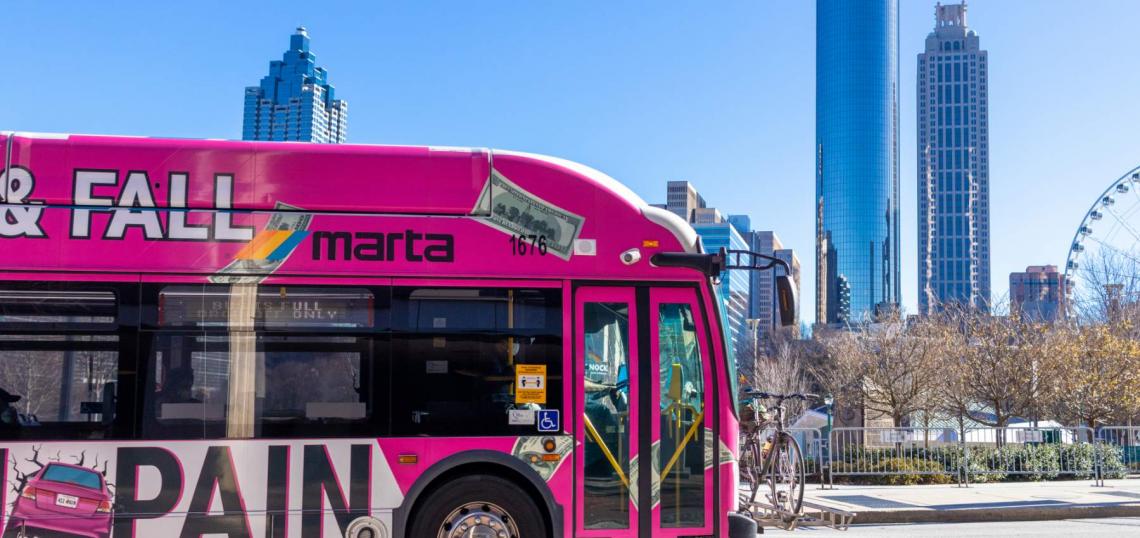Imagine you want to make a trip to downtown Atlanta without a car, bicycle, e-scooter, or other means of moving about.
Instead of summoning Uber or Lyft, or catching a train, you punch an app on your smartphone, walk to the street, and get picked up in moments by a MARTA bus heading that direction.
The charge for your ride? $2.50.
Could such an on-demand transportation component be an integral part of Atlanta’s transit future? Officials with MARTA and Georgia Tech say they’re about to find out.
The U.S. National Science Foundation has awarded the transit agency and school a $1-million grant to launch a pilot program, testing what’s known as an “On-Demand Multimodal Transit System Solution,” or ODMTS, around Atlanta.
The funding comes as part of the broader Civic Innovation Challenge program, which is helping foot the bill to develop community-based solutions to mobility and disaster challenges.
ODMTS, as MARTA officials relay, is considered a hybrid approach to traditional public transit and ride-share services. It “offers real-time routing that meets rider demand, optimizes vehicle use, and fills in service gaps left by a fixed bus route.”
One goal of ODMTS is to eliminate long waits at bus stops. Instead, riders would summon buses via smartphone apps to specific locations when they’re ready to head out, for example, to the grocery store or a MARTA train station.
“Exploring first- and last-mile connectivity options is important in providing transit service that meets the needs of everyone in metro Atlanta,” Collie Greenwood, MARTA’s deputy general manager, said in today’s grant announcement.
For starters, MARTA is partnering with the Georgia Tech Research Cooperation on the small-scale pilot program. The objective is to test the system’s efficiency and see if a version could be scaled across MARTA’s service area, as the agency retools and redesigns its network of bus transit.
MARTA says the initial ODMTS service will be test-driven in areas across the City of Atlanta, DeKalb, Fulton, and Clayton counties where there’s a need for more transit accessibility now.
Plans call for connections to nearby, traditional bus route transfer hubs, such as Park & Ride and rail stations. MARTA’s current one-way fare of $2.50 will apply, with all transfers included, according to the agency.
Georgia Tech professor Pascal Van Hentenryck, alongside the institute’s Industrial and Systems Engineering team, will provide the required technology for the project. That includes routing logic, as well as rider, operator, and administrator system apps.
In his own statement, Van Hentenryck called MARTA leadership “very forward-thinking” and “extremely collaborative” in providing Georgia Tech “with vast amounts of data and insights to drive the process.”
MARTA officials say a start date for the pilot program—and details on how interested riders can participate—will be released in coming months.
• MARTA wants your 2 cents: What should new train fleet look like? (Urbanize Atlanta)






